Description
ABSTRACT
An Appraisal of the Legal Regime for Cyber Security in Nigeria
Dr. Kathleen Okafor*
The Cybercrimes Act 2015 was signed into law in Nigeria to create a legal framework for prosecuting and mitigating cybercrimes in the country. With greater connectivity and sophistication in the world, the goals of cyber attackers have been evolving from traditional criminality to disruption of economic activity and infrastructure. In some cases, instead of stealing information for pecuniary gains, cyber criminals now steal technical designs, defence and military secrets, university research findings and computer forensic investigation secrets. They destroy computers, and crash communication networks. This paper analyses the provision of the Cybercrimes (Prohibition, Prevention etc.) Act 2015 and juxtaposes it with experiences in other jurisdictions with a view to showing how a robust legal regime for cyber security is imperative. There is also an attempt, herein, to expatiate on national and international implications of growing cyber threats, to assess the existing national, regional and international instruments, and to assist in establishing a sound legal foundation.
INTRODUCTION
The definition and scope of cybercrime varies according to a country’s socio-cultural peculiarities.1 However, Cybercrime can be defined in terms of any criminal activity that uses a computer either as an instrumentality, target or as a means for perpetuating further crimes.2 Furthermore, it encompasses those species of conventional crime, where either the computer is an object or subject of the conduct constituting crime. Cyber space is a fact of daily life which includes the internet and the hundreds of millions of computers the internet connects, the institutions that enable it, and the experiences it enables.3 It has become a fundamental feature of the world we live in and has created a new reality for almost everyone in the developed and developing world. Thus, the term cyber space pertains to networked computer sustained, computer accessed, and computer generated multidimensional artificial or “virtual” reality.4
Cyber space allows users to engage in activities conducted over electronic fields whose special domains transcend traditional, territorial, governmental, social and economic constraints. Access used to be limited to the most powerful, the nature of activity and complexity which restricted players. Presently, access to cyber space is available to more people around the world. By 2010, the number of people on internet access had reached 2 billion offering new opportunities for competition, conflict, pursuit of power and influence; allows interactions with human beings to shape ideas, exchange information, increase access to knowledge and alternative modes of reasoning.5
* Ph.D., BL. Head of Department, Property & Commercial Law, Baze University, Abuja.
- (2013) 4(8) International Journal of Scientific and Engineering Research.
- Shikha Singh, Cyber Laws (Global India Publications PVT Ltd 2011).
- Nazli Choucri, Cyberpolitics in International Relations (MIT Press) 3; cf Michael Benedict, Cyber space First Steps (MIT Press 1992).
- Michael Benedict, Ibid.
- Nazli Choucri, (n 3) 7.

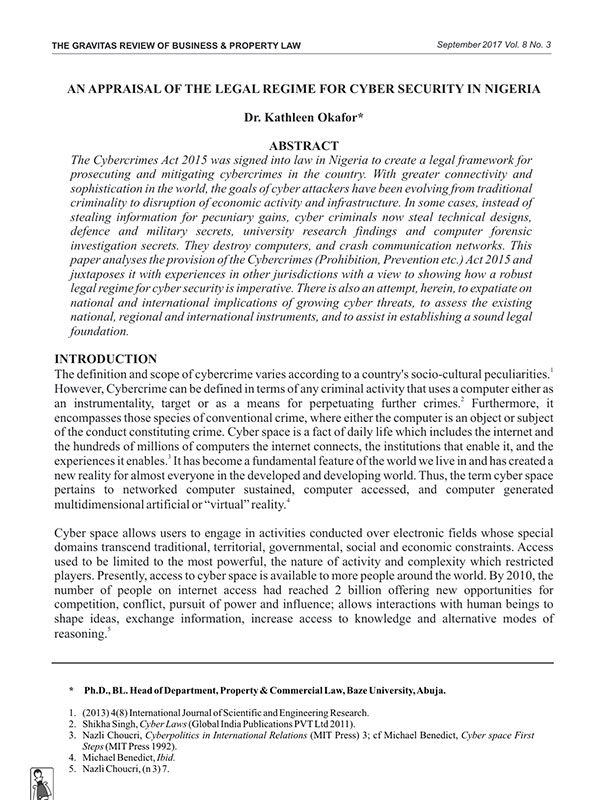
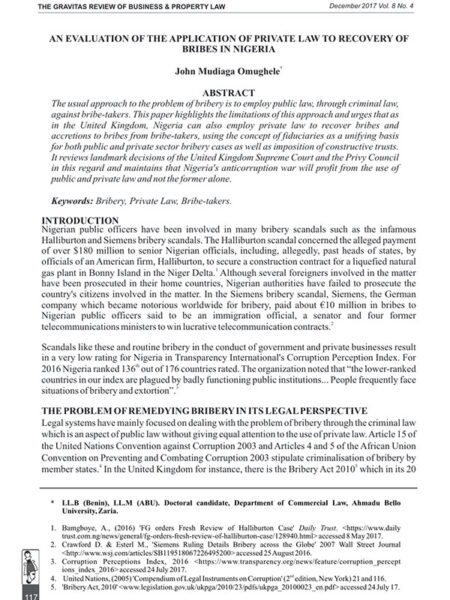
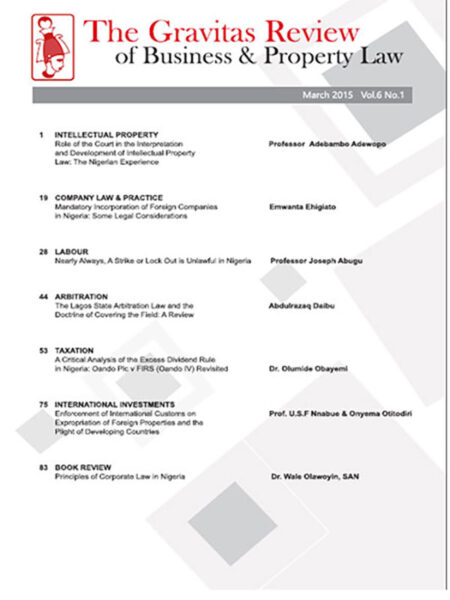
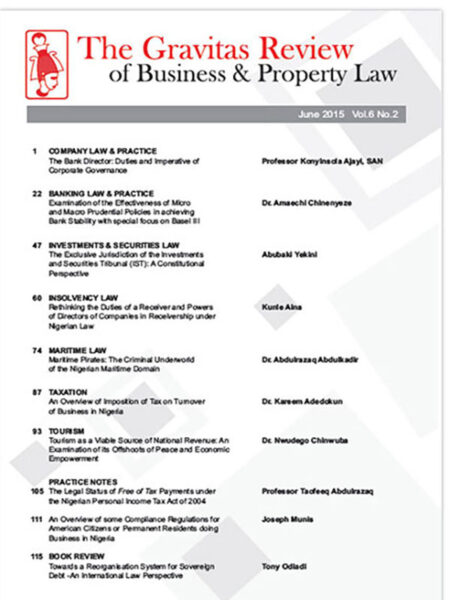
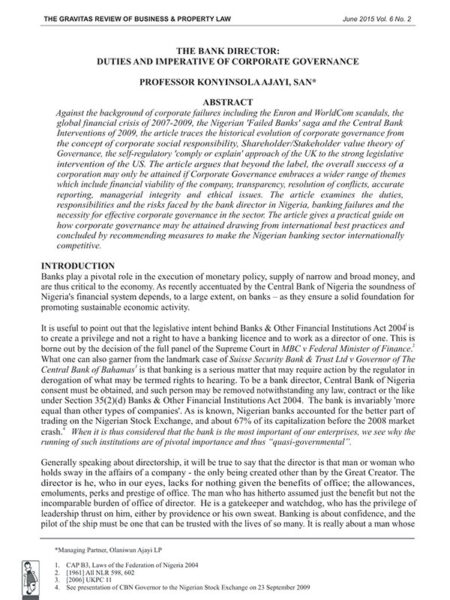


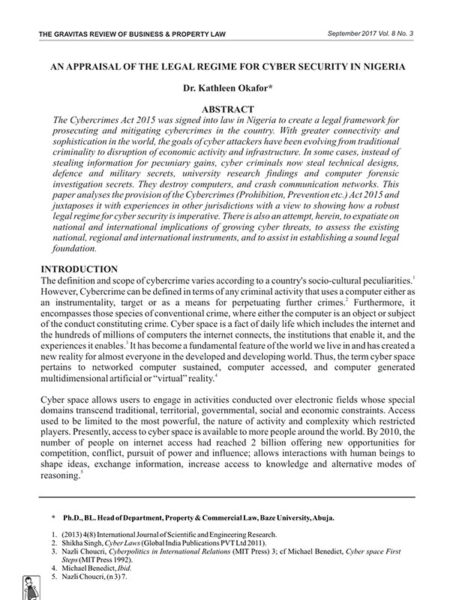
Reviews
There are no reviews yet.